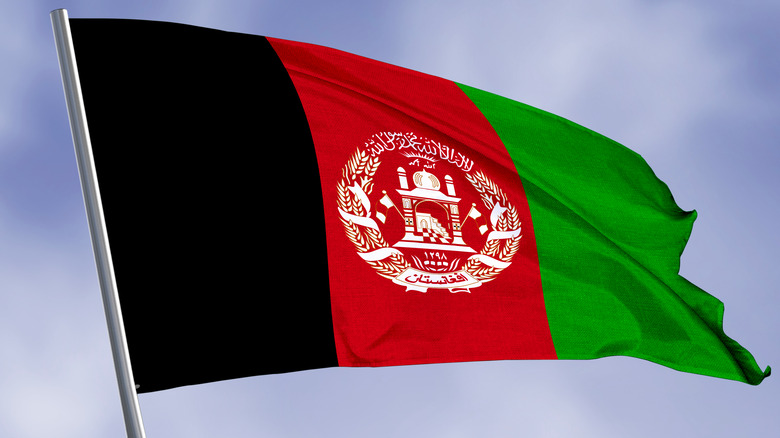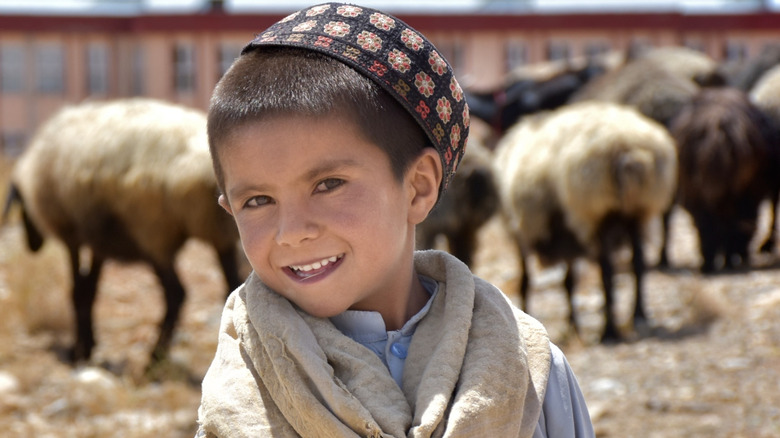This Is How Afghanistan Got Its Name
Afghanistan means "land of the Afghans," as "-stan" is a common suffix meaning "place of" in Urdu and Persian (via Dictionary). But who are the Afghans?
If you survey the people of Afghanistan today, you'll find lots of different ethnic groups. While Pashtuns make up a slight plurality of the country, a quarter of the population is Tajik, Ḥazāra make up a tenth of the population, and Uzbeks another tenth (via Britannica).
All of these groups today can be called Afghans because they live in Afghanistan, even though they may not share a national identity. This is because the country was molded by many colonizing powers, with borders shaped over time by leaders from Alexander the Great, Babur, and Genghis Khan, to more recent control under the governments of Great Britain and the Soviet Union. Though the conception of Afghanistan as a country is relatively modern, the concept of the Afghans as a people is ancient. According to Britannica, the word "Afghan" (as "Abgan") may date to the 3rd century, and the widespread Muslim use of the word dates to 982.
The Pashtun tribe and their potential origins
For a long time, the word Afghan was actually synonymous with the Pashtuns. As Merriam-Webster notes, it's borrowed from the Persian word for Pashtun, "Afghān." The Pashtun are an ethnic group comprised of about sixty tribes — some nomadic herders, some farmers — who practice Sunni Islam and speak a shared language (Pashto), according to Britannica.
A long oral tradition holds that the Pashtuns are descended from King Saul of Israel via his grandson Afghana (via Jerusalem Post). Anthropologists have noted that the Pashtuns have maintained practices similar to those of traditional Jews, including a separation of meat and milk, circumcision eight days after birth, and levirate marriage. Even Pashtun tribe names like Rubeni, Gadi, Ashuri, Efridi, Shinwari, Lewani, and Yousefzai sound like the names of lost Israeli tribes: Reuven, Gad, Asher, Ephraim, Shimon, and Yosef (again, see Jerusalem Post). So far, however, the DNA evidence to back this up has been scant, despite ongoing studies.

